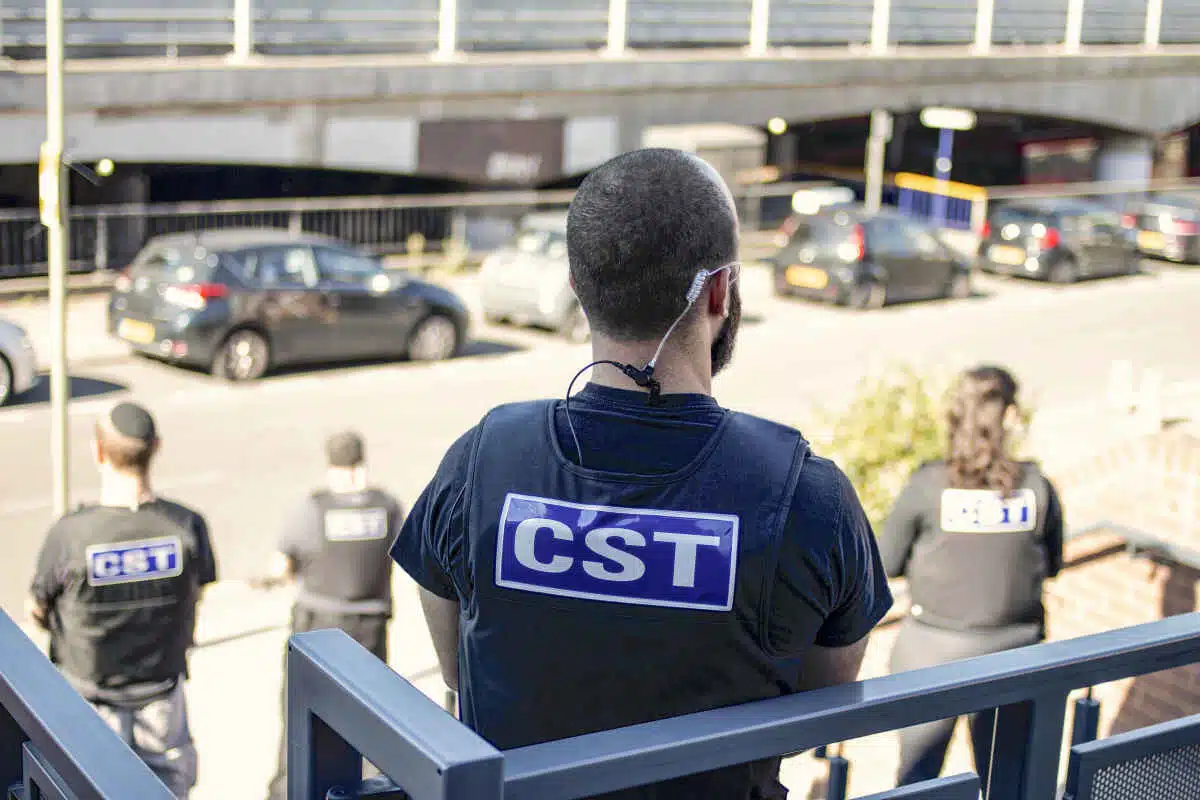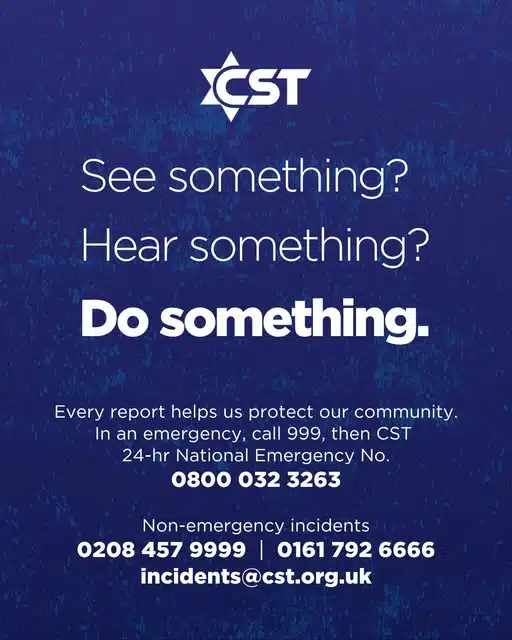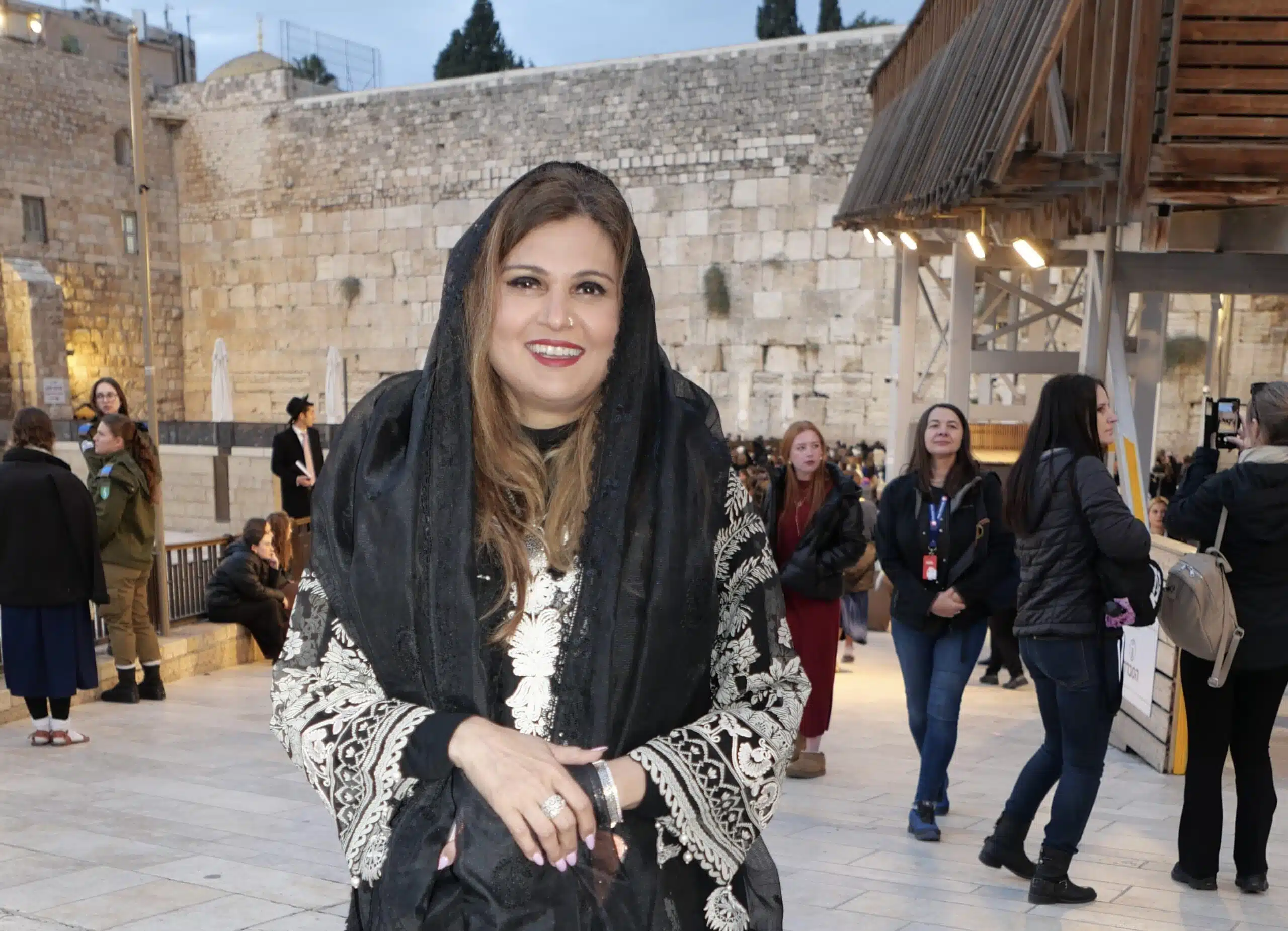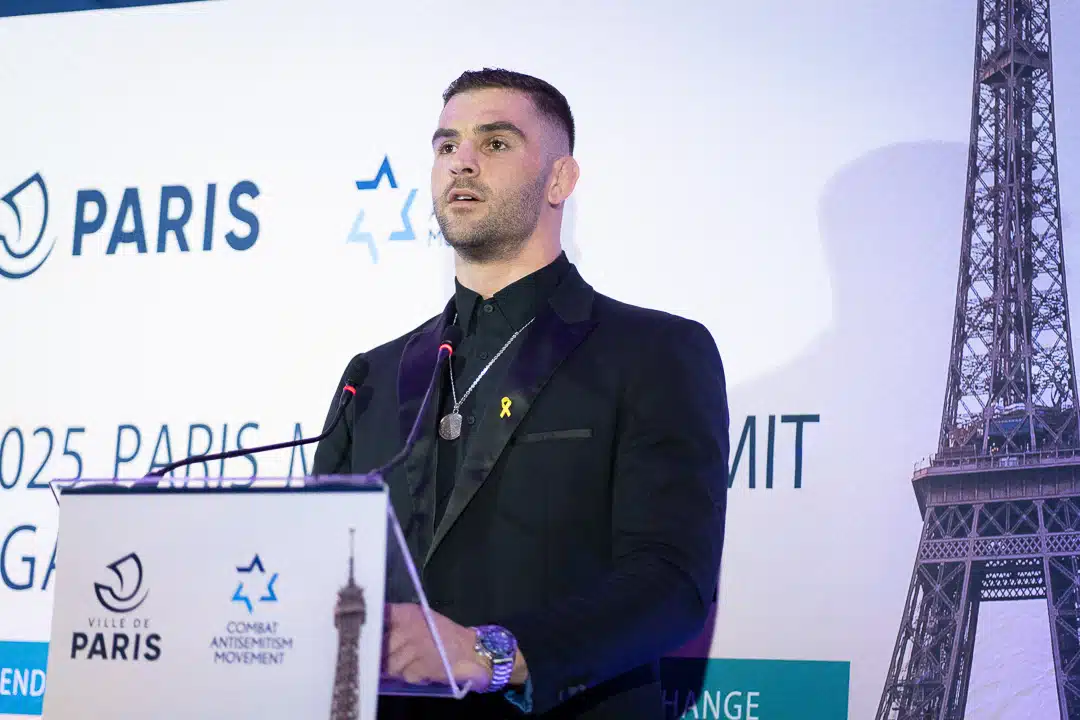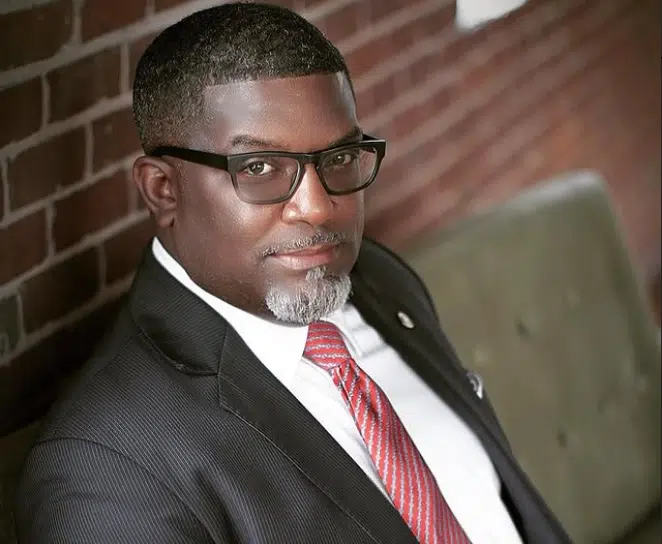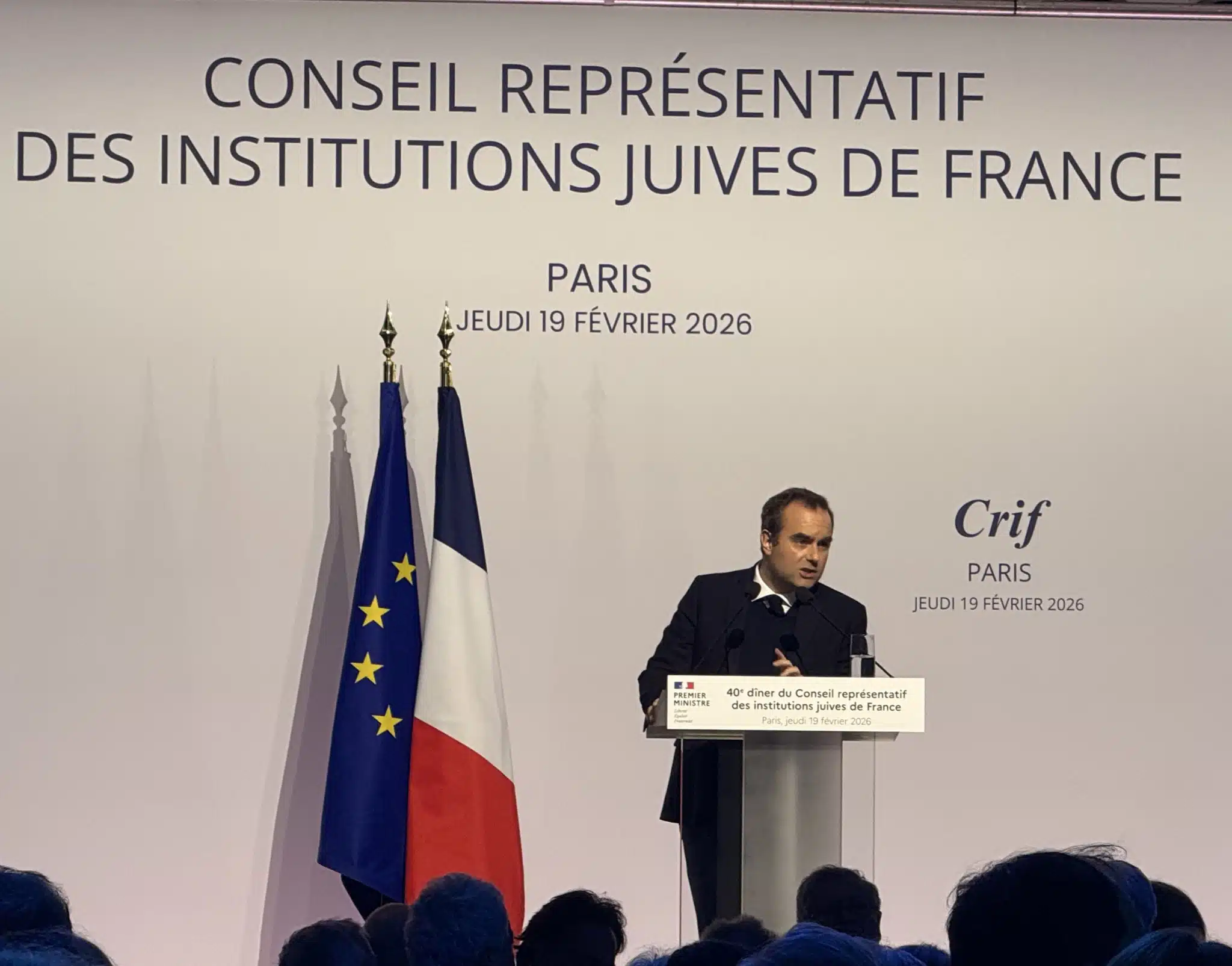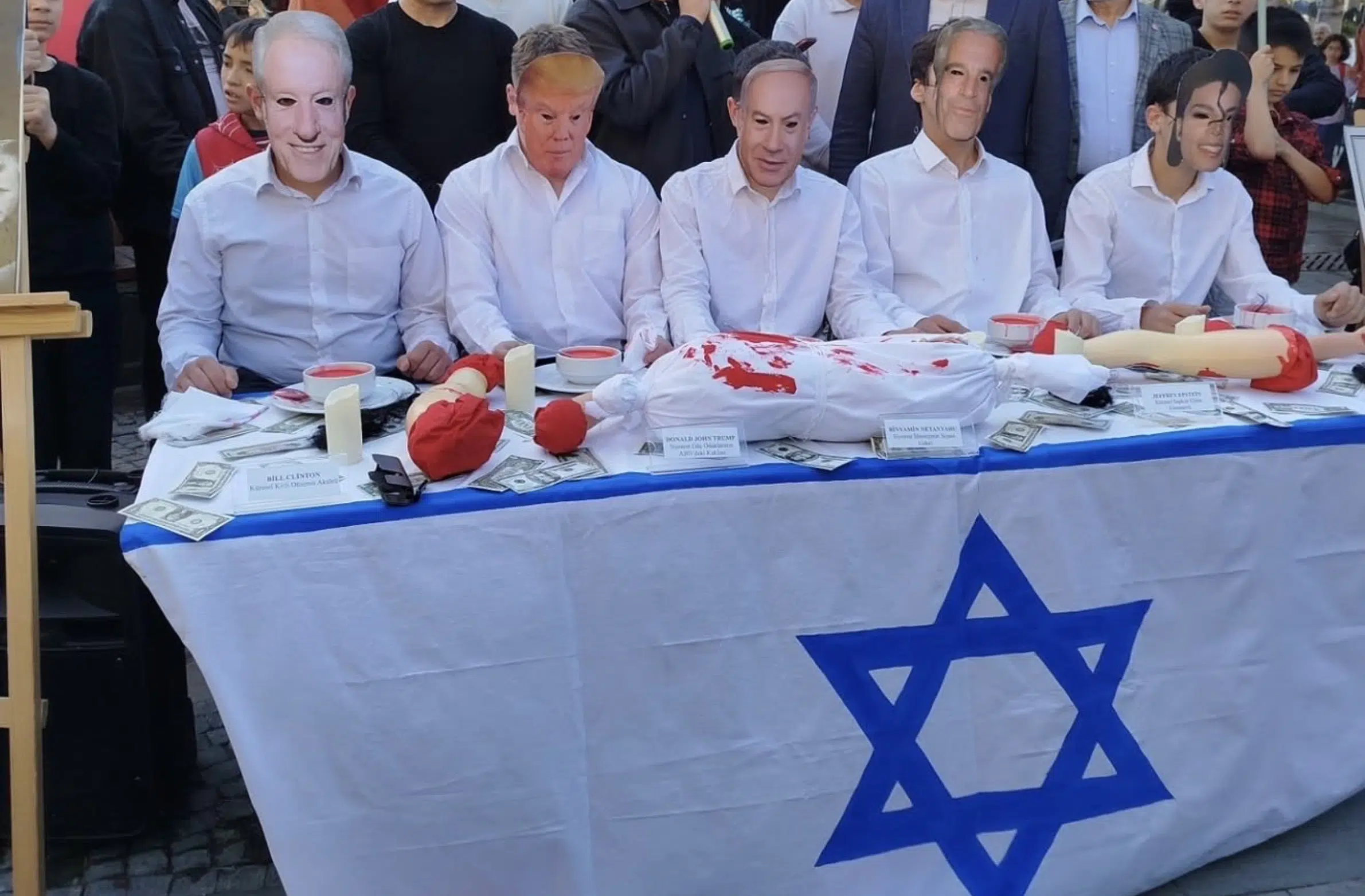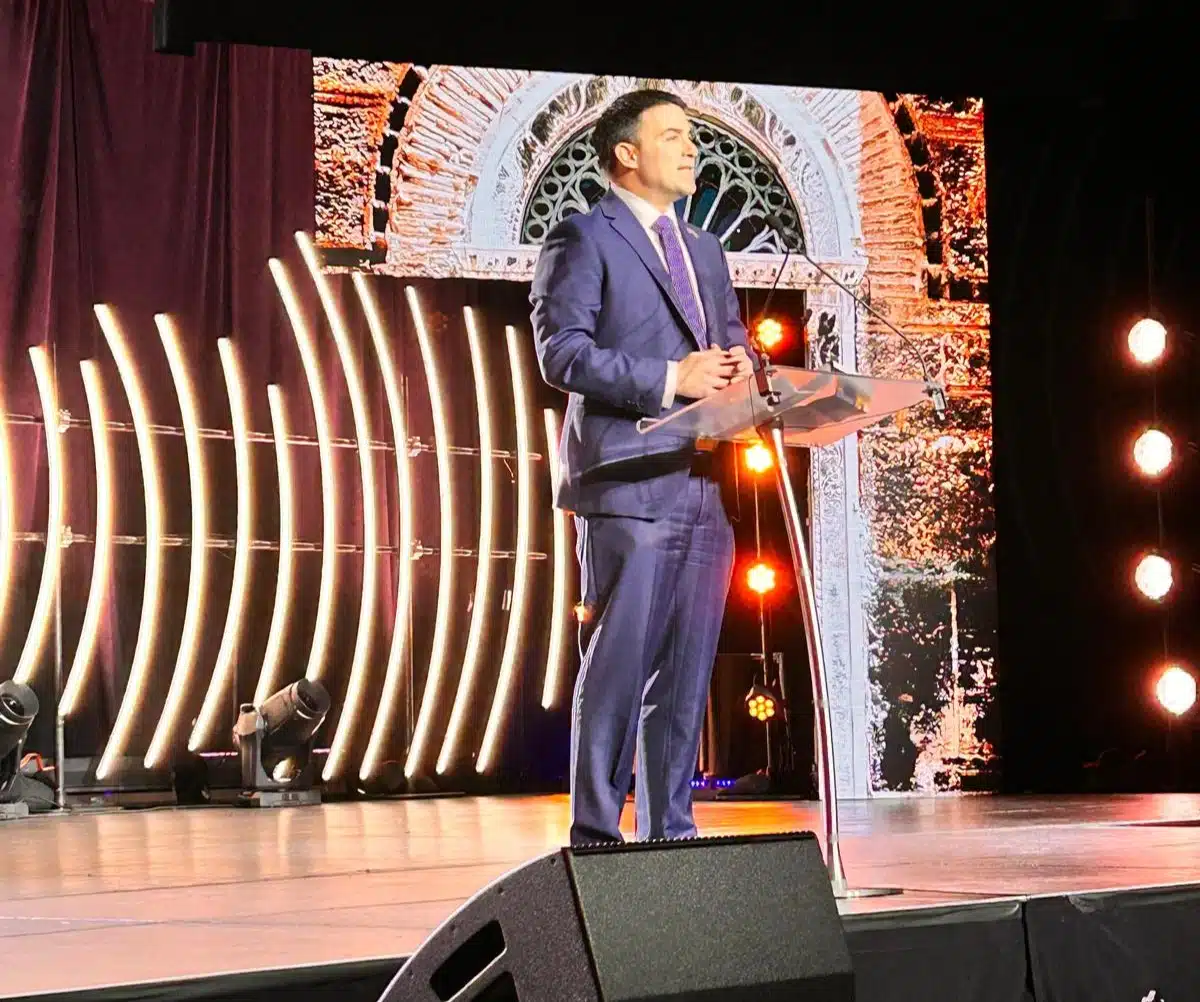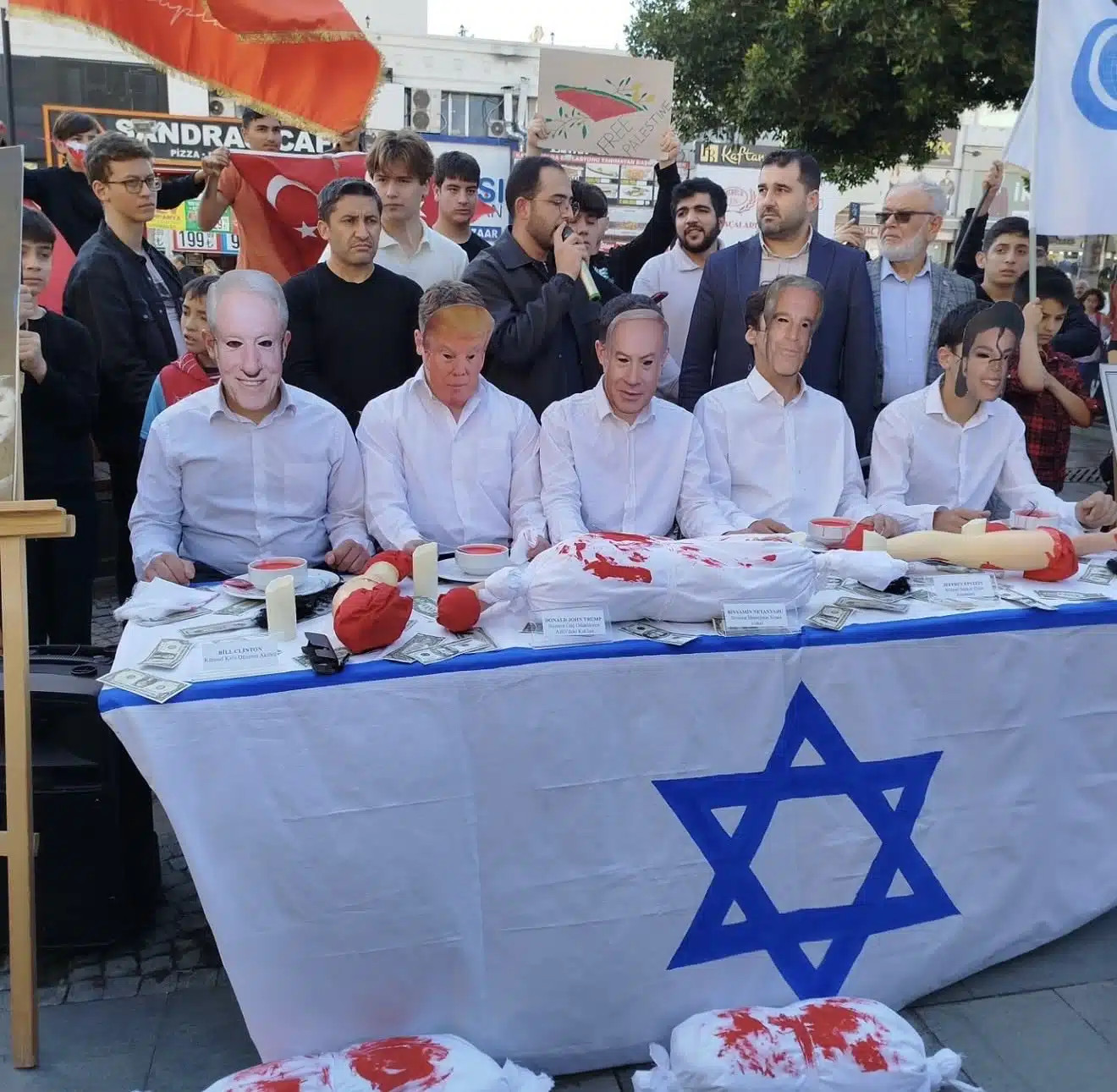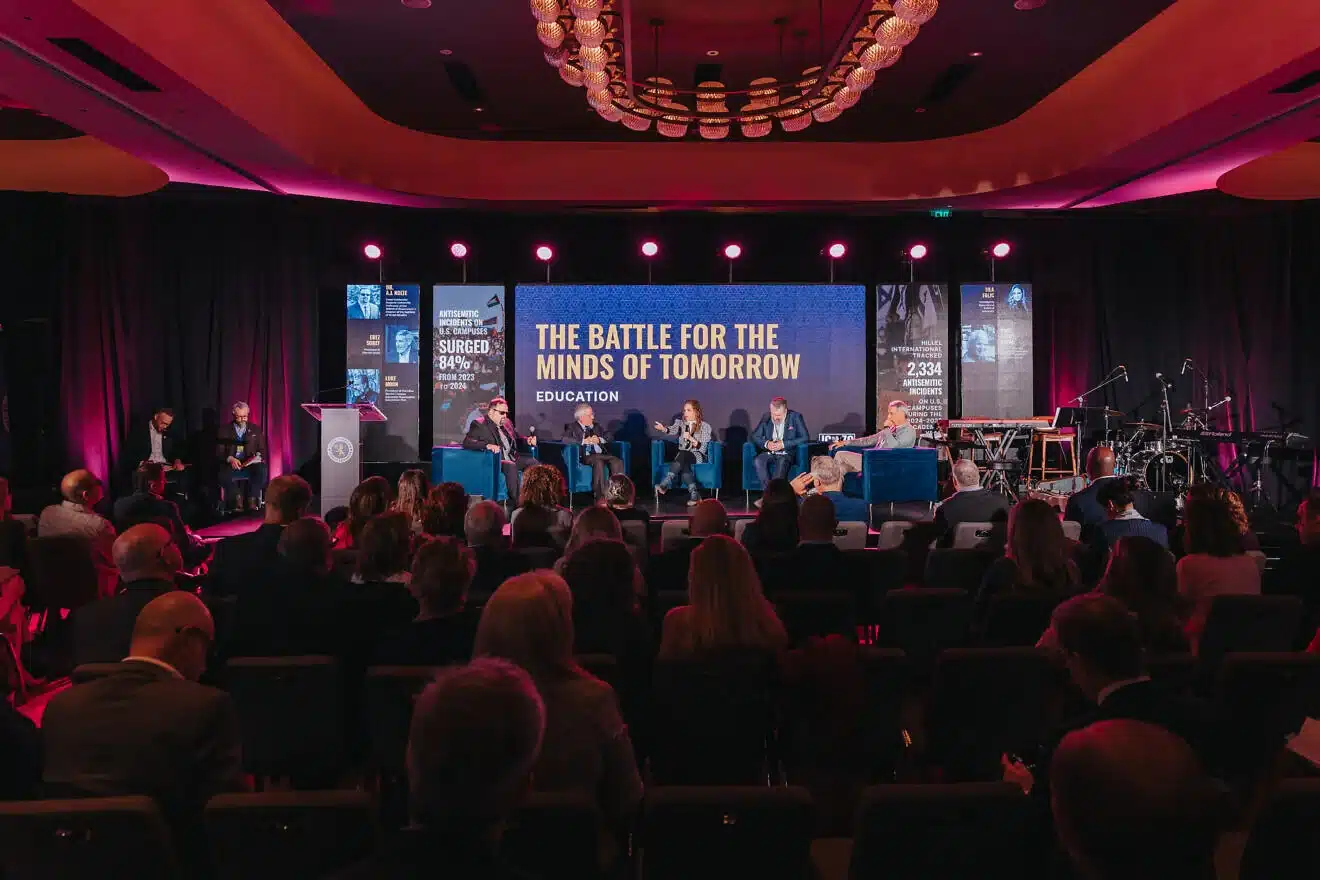|
Getting your Trinity Audio player ready...
|
Dr. Dave Rich is Director of Policy at the Community Security Trust (CST), a British charity dedicated to protecting the UK’s Jewish community from antisemitic threats and violence.
One of the UK’s leading authorities on antisemitism and political extremism, Dr. Rich has authored books including Everyday Hate: How Antisemitism is Built into Our World and How You Can Change It and The Left’s Jewish Problem: Jerry Corbin, Israel and Antisemitism. He oversees CST’s research, advocacy, and support for victims of antisemitic hate crimes.
In the wake of the October 7th massacre, antisemitism has erupted worldwide — engulfing countries across the globe, including Britain, in a wave of hatred not seen in generations, and this phenomenon only intensified during the recent Israel-Iran war.
The Combat Antisemitism Movement (CAM) spoke with Dr. Rich about CST’s response to this crisis, community preparedness, the normalization of anti-Jewish hate, and what British Jews and security officials can do to combat these threats.
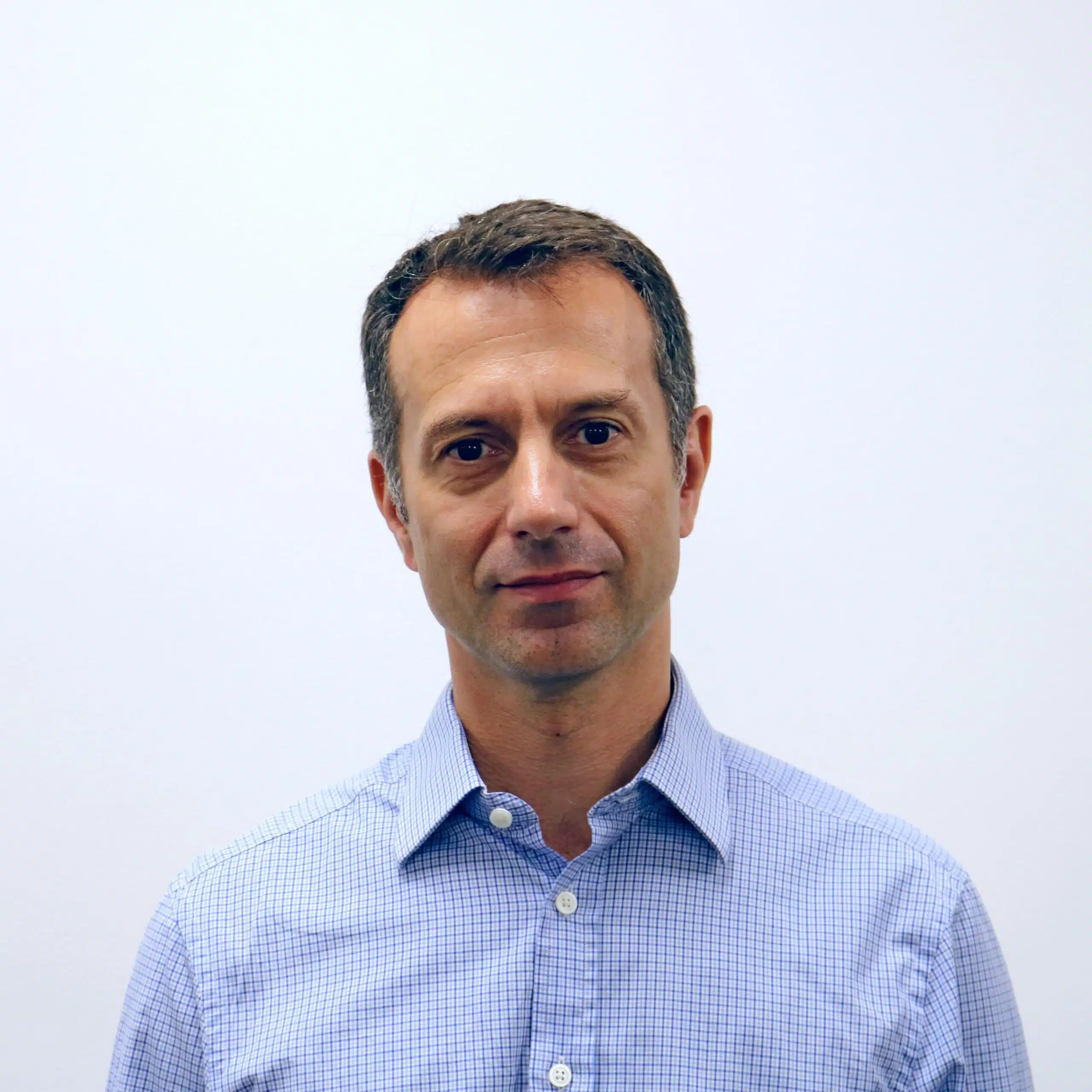
The nearly 600% surge in antisemitic incidents following October 7 didn’t just reflect outrage over a war — it exposed how quickly anti-Jewish hate can erupt, both globally and in the UK. What did this period reveal about the scale, speed, or evolution of the threats British Jewry now face?
CST recorded nearly twice as many antisemitic incidents in 2023 — two-thirds of them after October 7, with the week following the massacre marking an all-time high.
“The spike in antisemitism began on October 7th itself,” Rich emphasized. “It was a direct reaction to the Hamas attack on Israel, and the slaughter and kidnapping of so many Israelis.”
“We’re used to seeing antisemitism increase in response to images of Palestinians suffering during wars,” he explained. “But on October 7th, it was images of Jews who’d been killed that drove the spike.”
This wasn’t protest — it was celebration. People wanted “to join in… by going out shouting abuse at visibly Jewish people on the streets, driving past synagogues on a Saturday morning — waving their Palestinian flags at the congregants in celebration of what they’d seen.”
“This was antisemitism, plain and simple,” Rich said. “Not misguided anger at Israel. Not confusion. Hate.”
Since then, antisemitism in the UK has seeped into nearly every corner of public life. “Obviously, it’s increased in universities, and we’ve seen it spread to places where antisemitism wasn’t previously an issue — schools, workplaces, even the arts,” he noted.
As the world’s leading state sponsor of terror, Iran has a long history of targeting Jewish communities abroad. How does CST incorporate international conflicts, like Israel-Iran, into threat modeling and community guidance at home?
Iran’s role in global terrorism is not theoretical — it’s historic, ongoing, and central to how CST assesses threats to the UK’s Jewish community.
“Iranian efforts to carry out terrorist attacks against Jewish communities around the world and against Israelis outside of Israel have been going on since the early 1980s,” Rich said. “Almost as long as the Islamic Republic has existed.”
Whether acting directly, through proxies like Hezbollah, or via transnational criminal networks, Tehran’s global reach has repeatedly placed Jewish communities in its crosshairs. One of the clearest examples: the 1994 AMIA Jewish community center bombing in Buenos Aires, which killed 85 people and was orchestrated by Iran and Hezbollah.
“That attack is the foundation of what CST is about,” Rich said. “How do we protect our community against that kind of terrorism?”
While CST was founded that same year as an independent charity, its mission has evolved to address a wide range of ideologically driven threats. “We’ve seen waves of other kinds of terrorist threats to Jewish communities,” he pointed out, “whether from Sunni jihadist groups like al-Qaeda and ISIS, neo-Nazi terrorists like in Pittsburgh or Halle, or extreme left-wing terrorism like we saw in Washington, D.C.”
“The ongoing Iranian threat is always there,” Rich said. “It has to be part of our threat monitoring and threat assessment.” However, “it’s never sufficient to just focus on one source. These all exist side by side.”
With antisemitism surging after October 7, and rising even further following the Israel-Iran escalation, how has CST adjusted its threat modeling to address this evolving landscape? Are there specific indicators or developments you’re watching more closely now, and how do you translate those insights into actionable steps for community protection?
The post-October 7 security environment has introduced new challenges, but Dr. Rich emphasized that protecting Jewish life must go hand-in-hand with preserving its vitality.
“It’s a constant challenge,” he said. “We have to make sure that our communities are sufficiently protected.” That includes “sufficient physical security, making sure communities know how to report things, and that we have the support of government and police.”
But CST’s approach isn’t just about deterrence — it’s about confidence. “There’s no point putting so much security on a building when people are scared to go to it,” Rich added.
After October 7, CST was flooded with urgent questions: Is it safe to send our children to school? Is it safe to go to synagogue or community events? Rich recalled, “Our answer was always: don’t cancel anything. We’ll make sure sufficient security is there so that it is as safe as it’s possible to be.”
“We need our community to be aware of the threats, to be security conscious, to know how to report things,” he continued. “But not to be so full of fear and anxiety that they’re not willing to go about their Jewish way of life.”
Antisemitism today is coming from all directions — Islamist extremists glorifying terror, far-left groups targeting Jewish institutions and students, and far-right conspiracy theorists reviving classic tropes. How does CST assess and respond to such ideologically diverse threats in real time? And do you adapt your protocols or response strategies depending on where the threat is coming from?
“We often get asked, ‘What’s the most serious threat right now — is it the far-right, Islamists, Iran?’” Rich said. “And our answer is always: the most dangerous terrorist is the one who actually turns up at the door of your synagogue. And that could be anyone.”
The threat landscape is too varied to focus on one ideology. “A lot of people think antisemitism is only to do with one particular type of ideology or politics, and it’s not,” he explained. “It’s all motivated by this conspiratorial idea that whatever it is you don’t like in the world, the Jews are to blame.”
CST’s protocols are responsive and flexible. “Different types of terrorists have different methods of attack that they prefer to use,” he said. “They’re constantly improvising — stabbings, vehicle rammings, Molotov cocktails, car bombs.”
“If the threat is a car bomb, you want to keep vehicles away. If it’s a forced entry, you focus on access control. Sometimes, you have to do both.”
CST updates its strategies continuously to ensure Jewish communities are prepared for evolving dangers.
For synagogues, schools, or community centers, especially those with limited resources, what are the top security measures you believe should be prioritized immediately? Which tools, protocols, or partnerships have proven most effective — particularly in defending against both targeted attacks and day-to-day harassment?
“The first thing to do,” Rich said, “is get in touch with your local Jewish community security organization. Take full advantage of any training, resources, or advice they can offer.” He also urged communities to establish relationships with local police.
Rich underscored one basic but critical measure: “Keep your front door shut and your back door shut.” He recalled the 2019 Yom Kippur attack in Halle, Germany, where a neo-Nazi failed to breach the synagogue. “Everyone inside was saved because the door was shut and locked,” he said.
Rich stressed the importance of situational awareness. “Know what’s normal on the streets around your building,” he said. “Make friends with your neighbors — they can be your extra eyes and ears.”
“Just like every building has a fire drill, you need drills for different kinds of threats,” Rich continued. “What’s the lockdown protocol? When do you evacuate? Who’s in charge? Where are emergency numbers kept?”
Security isn’t just about locks and cameras — it’s about mindset. What does it take to build a culture of preparedness across a Jewish community — not just at the leadership level, but among volunteers, staff, parents, and congregants? What kinds of drills, communication protocols, or training should become standard practice? And just as importantly, how do you foster this readiness without fueling fear or fatigue — so that Jewish life remains open, resilient, and strong?
“Everyone can play their part,” Rich said. Whether walking to synagogue, organizing an event, or volunteering, individuals should stay alert, report anything suspicious, and know who to contact.
“We do security not because we’re scared to be Jewish,” he said, “but because we’re proud to be Jewish. We’re proud of our communities. We’re proud of our way of life. And we want to protect it.”
That sense of pride is what makes preparedness sustainable. “We think it’s worth protecting. And we have the right to be safe,” Rich noted.
“There’s an ethos in a lot of Jewish communities that we all pitch in — whether it’s education, caring for the elderly, Holocaust remembrance, or supporting Israel,” he said. “It’s the same with security. Everyone can play that part.”
On the individual level, what are the most important things every Jew in the UK should know or do right now to stay safe — whether they’re walking to shul, organizing a gathering, or navigating hostile content online? And for those on the front lines, CST volunteers, security officers, community responders, what skills, habits, or blind spots matter most in this moment of heightened risk?
“If you see anything suspicious or experience antisemitism, no matter how minor, please report it to CST,” Rich urged. “Even if you don’t think it’s important, it might connect to something else we know about.”
He encouraged everyone to store CST’s emergency number — 0800 032 3263 — in their phones and to use it if needed. “Don’t hide away — but go about your Jewish lives with your eyes open,” Rich said.
He also offered guidance for those involved in community security. “Firstly, thank you,” he said. “Get as much training as you can. CST provides all sorts of security training. And never be complacent. Treat every shift as the one where something could happen.”
Many now fear we’re entering an era where antisemitism isn’t just tolerated — it’s being normalized. It’s in our protests, on our streets, across our campuses, embedded in mainstream discourse. What can Jewish communities do not only to protect themselves physically, but to actively resist this creeping normalization of hate? And in a time of rising fear, what message do you want British Jews — and those who stand with them — to carry forward with strength and clarity?
“Antisemitism has become more mainstream,” Rich replied. “Much more normalized. Many more Jewish people are encountering it in their daily lives.”
But the answer is not silence. “We need to find our voice,” he said. “We need to be speaking up — and speaking back.”
And we can’t do it alone. “Most people in Britain don’t know any Jews or even understand the word ‘antisemitism,’” Rich explained. “That’s why we often use ‘anti-Jewish hatred’ — it’s more direct and resonates more clearly.”
“There is so much ignorance — about the Jewish community, about antisemitism, about Zionism,” he added. “Sometimes just explaining things in an open, non-judgmental way—talking about the impact it all has on our community — can really get through.”
“Not everyone will listen—but many will, if we speak with clarity, honesty, and courage,” Rich said.
We’ve seen increasingly aggressive and normalized rhetoric — calls to “Globalize the Intifada,” chants of “Free Palestine,” and other slogans that blur the line between protest and incitement. When you hear this kind of language — especially knowing it has already preceded acts of violence — what can be done? Even when it falls below the legal threshold, how should authorities and communities respond to rhetoric that creates a permissive environment for antisemitic attacks?
Slogans like “Globalize the Intifada,” “Resistance is justified,” and “End Zionism” may sound abstract to some — but for Jewish students, they create real fear.
“When Jewish students say they’re scared to walk through an encampment, that is not an empty fear,” Rich emphasized. “That’s not about hurt feelings. That’s a fear because — how are they to know if the person willing to carry out a violent attack off the back of that rhetoric isn’t right there in that encampment?”
“It’s a difficult area,” Rich acknowledged, “because very often we’re talking about language that isn’t going to be prosecuted — but that is very problematic. It creates a permissive environment in which more explicit, and sometimes physical, antisemitism can take place.”
“Political violence rarely erupts in isolation — it emerges from movements that justify and normalize hate,” he said.
The recent antisemitic terrorist attacks in Washington, D.C. and Boulder, Colorado underscored that point. “The language used by both attackers reflected slogans that are absolutely mainstream in the anti-Israel protest movement,” Rich said.
Rich called for responsibility from institutions. “Even if something falls below the prosecutable threshold, authorities need to recognize this language is dangerous,” he said. “If it’s left unchecked, there will be more attacks.”
“Jewish communities always ask what more we can do,” Rich added. “But there comes a point where the responsibility shifts to others — universities, police, governments.”
And education is critical. “A lot of people chanting these slogans have no idea what they’re saying,” he noted. “It’s like a sports chant to them. They don’t understand the history or the violence those words are tied to.”
In a time of rising hate, Dr. Rich’s message is both clear and empowering: Jewish life must not retreat — it must stand firm, vigilant, and proud. With the right support, training, and voice, Jewish communities can confront the threats of today and shape a safer tomorrow.

